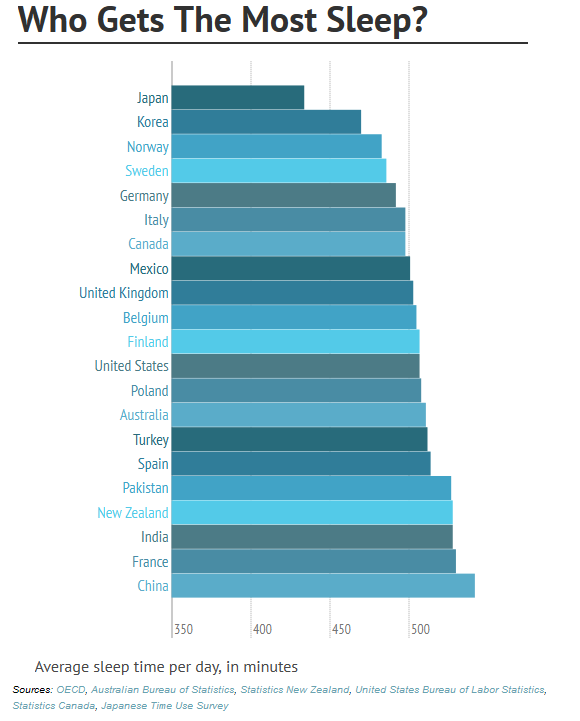How far should companies go to encourage employees to sleep?

Delegates rest during a break of the plenary session at the U.N. Climate Change Conference. Image: REUTERS/Enrique Castro-Mendivil

Get involved with our crowdsourced digital platform to deliver impact at scale
Stay up to date:
Future of Work
To prove how serious it is about getting employees to unplug at night, one European car company switches off the work emails of non-management employees automatically between 6 p.m. and 7 a.m.
And while that may not work for all businesses, the practice sends a clear message to its workforce: Get some rest.
There’s some debate about whether we’re actually in a crisis of sleeplessness, but the Centers for Disease Control and Prevention saysone in three American adults don’t get enough shuteye.

The management consultants at McKinsey—who noted the pro-sleep email policies of that nameless European car company in a recent report—say lack of sleep can impair leaders and dull their performance. McKinsey warns that staying awake 17 to 19 hours, say, working until midnight after waking up at 6 a.m., can be as detrimental as a blood alcohol level of 0.05%. (A blood alcohol limit of 0.08% is the US nationwide limit for drivers.)
Companies need to do more to encourage healthy sleep habits. And that positive stance on sleep should be part of a broader approach to well-being that includes guidelines for exercise and nutrition, McKinsey says. Employers can also take practical steps, such as shutting off emails at night, setting up teams that can hand off work across time zones, and discouraging red-eye flights. Other companies offer bonuses for employees who actually use their vacation time and disconnect from work.
Some notoriously hard-driving firms are moving in the right direction, even if it’s only with baby steps. Goldman Sachs last summer said interns couldn’t work more than 17 hours, a measure some linked to the high-profile deaths of young people who had been working punishing schedules in the finance industry.
And if companies aren’t motivated to promote sleep out of concern for their employees’ health, they may be inspired by more prosaic reasons: As millennials are increasingly drawn to companies that value a work-life balance, sleep-starved employers may struggle to retain top talent.
Don't miss any update on this topic
Create a free account and access your personalized content collection with our latest publications and analyses.
License and Republishing
World Economic Forum articles may be republished in accordance with the Creative Commons Attribution-NonCommercial-NoDerivatives 4.0 International Public License, and in accordance with our Terms of Use.
The views expressed in this article are those of the author alone and not the World Economic Forum.
The Agenda Weekly
A weekly update of the most important issues driving the global agenda
You can unsubscribe at any time using the link in our emails. For more details, review our privacy policy.
More on Future of WorkSee all
Kate Whiting
April 17, 2024
Andrea Willige
February 29, 2024
Kara Baskin
February 22, 2024






